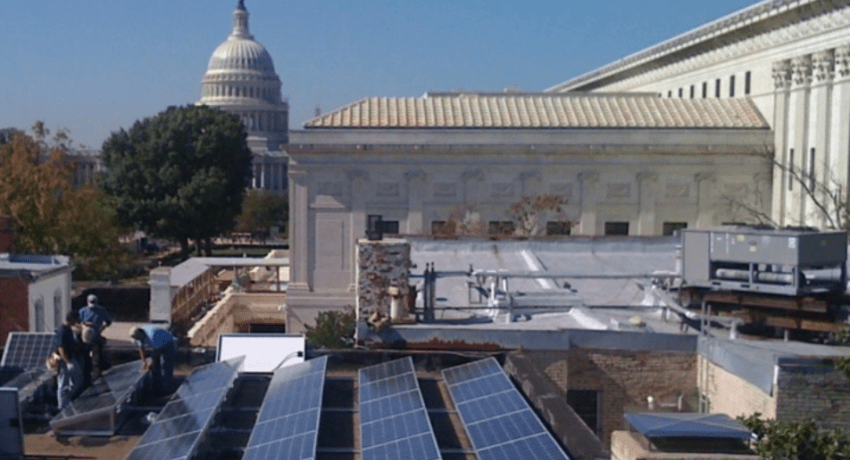GREEN Act Reintroduced by House Lawmakers
US House Ways and Means Subcommittee on Select Revenue lawmakers have reintroduced the GREEN (Growing Renewable Energy and Efficiency Now) Act. This includes a provision for extending solar Investment Tax Credit (ITC) for five years.
The entire Democratic membership led by Mike Thompson (D-CA) Subcommittee Chairman Rep. of the full House Ways and Means Committee have signed on to the bill.
The legislation according to co-sponsors which was first introduced in June 2020 allows for a more comprehensive application of the federal tax code. This helps in combating the threat of climate change. House Ways and Means Committee Chairman Richard E. Neal (D-MA) fully supports the bill.
Bill Termed Critical for Solar Industry
The bill was called critical by the Solar Energy Industries Association (SEIA). The association noted multiple provisions, including the 5-year extension on ITC and the option for direct pay on large projects while claiming the ITC.
Deployment of solar energy is driven by long-term tax policy. Abigail Ross Hopper, SEIA’s president and CEO told in statement that this provides companies with the certainty required for making business investments at a large enough scale to tackle climate issues.
The solar ITC as per the bill summary would be extended to 30% by the end of 2025. This would be phased down in 2026 by 26% and 22% in 2027. Thereafter, the phasing would be done by 10%. This is similar to the 2-year ITC extension secured in 2020.
An ITC would also be established for energy storage technology under the GREEN Act on a stand-alone basis. The benefit for this would begin at 30% in 2026. It would then be phased down in 2027 to 26% and in 2028 to 22%.
Interim CEO of the US Energy Storage Association, Jason Burwen, said that a level playing field is created for power sector investments when energy storage is made eligible for ITC. This also helps in accelerating jobs in manufacturing and storage deployment.
The bill includes several provisions for electric vehicles, energy efficiency, and clean energy workforce development. The GREEN Act is believed to have a better chance at being passed in the current Democrat-controlled House, Senate, and White House.
Hopper of SEIA said that they looked forward to work with lawmakers for the purpose of refining the legislation as it advanced.
Bill Expected to Boost Clean Energy Jobs
The bill if signed into law is expected to make $8 billion in federal tax credits available. This will help boost at-home manufacturing of advanced energy technologies by communities in rural sectors. These sectors are currently facing a loss of jobs in coal fired power production and mining.
Tax credits would be provided by the bill for industrial users and manufacturers. Credits would be employed for investments in energy storage, advanced electric grid, renewable energy, fuel cell equipment, advanced vehicles (light, medium and heavy duty), and energy efficiency equipment.
There is a $4 billion carve out in the bill for use where coal power plants or coal mines have been shut down.




